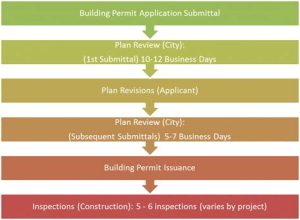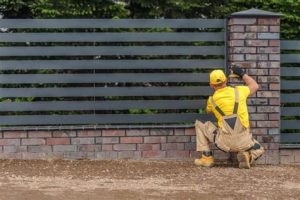Discover how to navigate local regulations, ensure safety, avoid legal issues, increase property value, and achieve peace of mind in real estate investments.When planning to install a fence, many homeowners may underestimate the importance of obtaining a permit. However, getting a permit for your fence installation can lead to a smoother, more secure project with a multitude of benefits. From ensuring compliance with local regulations to enhancing the safety and stability of your structure, the advantages extend beyond mere legalities. A well-planned fence can also increase your property value and foster a sense of peace of mind, knowing you’ve taken the right steps to avoid potential legal consequences. In this blog post, we will explore these essential benefits in detail, empowering you to make informed decisions for your fencing project.
Understanding local regulations
When considering a fence installation, it is essential to understand local regulations that govern property enhancements. Most municipalities and homeowners’ associations have specific rules regarding the height, type, and placement of fences to ensure they comply with community standards and safety requirements.
Failing to comply with these regulations can result in penalties, including forced removal of the fence or fines. To avoid these issues, it is advisable to check the local zoning laws and any other relevant ordinances before starting the installation process. Understanding these rules not only aids in ensuring compliance but also fosters a positive relationship with your neighbors.
Furthermore, applications for permits often require detailed plans and specifications. This step, while sometimes tedious, ensures that your fence meets all necessary codes and standards, thereby enhancing the overall integrity and safety of the installation.
Ensuring safety and stability
When considering the installation of a fence, ensuring safety and stability should be a top priority. A properly installed fence not only provides a physical barrier but can also enhance the structural integrity of your property. Without the proper permits, you risk creating a fence that may not comply with local standards, potentially leading to dangerous outcomes.
Obtaining a permit typically involves adhering to regulations that dictate how deep the posts should be set, the types of materials that can be used, and the overall design of the fence. These regulations are often intended to prevent scenarios that could lead to accidents, such as a fence collapsing or failing to provide adequate protection.
Moreover, a stable fence contributes to the overall safety of your home by deterring trespassers and keeping pets or children secure within your yard.
Avoiding legal consequences
When it comes to fence installation, avoiding legal consequences is a critical factor that homeowners must consider. Failing to obtain the necessary permits can lead to significant fines, legal disputes with neighbors, and even the requirement to remove the fence altogether.
By obtaining the proper permits, you not only comply with local laws, but also protect yourself from any potential litigation. If a neighbor disputes your fence based on height, location, or structural integrity, having the appropriate permits can serve as evidence that you followed the necessary procedures for installation.
Moreover, many municipalities have specific regulations about types of fences, their heights, and placement. Ignoring these regulations by opting out of getting a permit can result in costly modifications or removals later on. Thus, investing time in acquiring the right permits can save you both money and stress in the long run.
Increasing property value
Installing a fence can significantly enhance the value of your property. A well-constructed and aesthetically pleasing fence not only provides security and privacy but also adds a visual appeal that is often coveted by potential buyers.
Buyers frequently seek properties with defined boundaries and well-maintained landscapes. A high-quality fence made from premium materials demonstrates a concern for quality and care of the property, which can lead to higher offers compared to similar properties without a fence.
Additionally, types of fences that offer both functionality and style—such as wooden picket fences or vinyl fencing—can particularly help in increasing the allure of your property.
Gaining peace of mind
Installing a fence can be a daunting task, especially when you consider the various factors involved. One significant aspect that can alleviate much of this anxiety is obtaining a permit for your fence installation. By securing the necessary permissions, you not only comply with local regulations but also benefit from a peace of mind that is hard to quantify.
Getting a permit means that your fence has been evaluated and approved by authorities, ensuring that it meets all safety standards and is suitable for your property. This process can help you avoid any unexpected issues that could arise later on. Plus, you can rest easy knowing that your installation won’t result in disputes with neighbors or potential legal problems down the line.
Moreover, having a permit often provides a sense of reassurance that your fence is built to last, done correctly, and adheres to local guidelines. This security allows homeowners to focus on enjoying their property rather than worrying about potential violations or complications. Ultimately, applying for a permit transforms what could be a stressful installation process into a smooth and reassuring experience.
Frequently Asked Questions
What is a fence installation permit?
A fence installation permit is an official approval issued by local government authorities that allows homeowners to construct a fence on their property in accordance with local regulations.
What are the benefits of obtaining a permit for my fence installation?
Obtaining a permit ensures that your fence complies with local zoning laws, avoids potential fines, and can help in preventing any legal disputes with neighbors regarding property boundaries.
How can a permit protect me from future legal issues?
A permit provides documented proof that your installation follows local codes and regulations, which can protect you from future claims or disputes regarding property lines or building codes.
Are there any costs associated with getting a fence permit?
Yes, there typically is a fee associated with applying for a fence permit, which varies by location. It’s essential to check with your local government for specific costs.
What documents do I need to provide to obtain a fence permit?
You usually need to provide a site plan indicating the proposed fence’s location, the type of fence material, and possibly property lines or surveys to ensure compliance with zoning regulations.
How long does it take to get a fence installation permit?
The timeline for obtaining a fence permit can vary widely depending on local government processes, but it usually takes anywhere from a few days to several weeks.
Can I install a fence without a permit?
While you may be tempted to install a fence without a permit, doing so can lead to fines, required removal of the fence, or complications if your neighbors dispute the installation.





